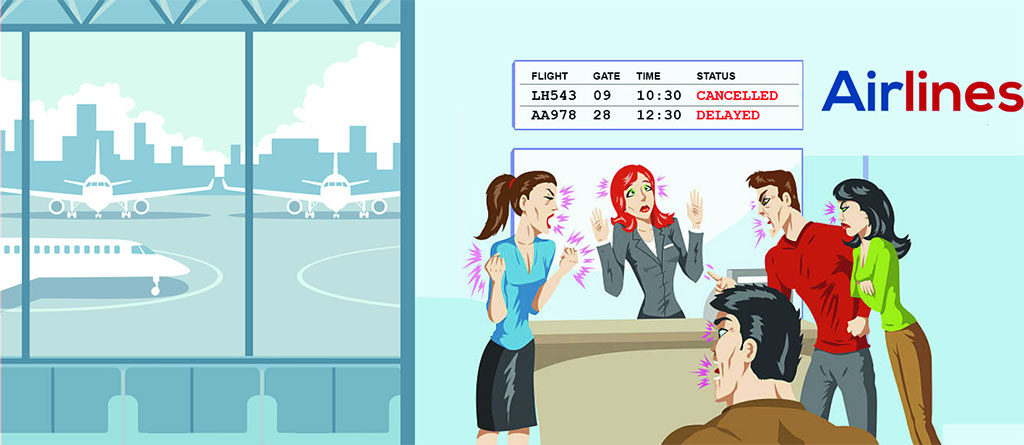 The five-day intensive training began with an Introduction to Arbitration by Prof. Mario E. Valderrama. This was followed in the afternoon by a discussion on the Arbitration Agreement and Commencement of Arbitration by PDRC Secretary General Roberto N. Dio, who filled in for Atty. Patricia Ann T. Prodigalidad.
The five-day intensive training began with an Introduction to Arbitration by Prof. Mario E. Valderrama. This was followed in the afternoon by a discussion on the Arbitration Agreement and Commencement of Arbitration by PDRC Secretary General Roberto N. Dio, who filled in for Atty. Patricia Ann T. Prodigalidad.
On the second day, Prof. Gwen B. Grecia-De Vera discussed Emergency Arbitrator and the Arbitral Tribunal, with a video clip of an emergency arbitration. In the afternoon, Atty. Shirley F. Alinea talked on Consolidation, Multiple Contracts, Joinder of Parties and Preliminary Matters.
The third day of the training featured Atty. Ricardo Ma. P.G. Ongkiko’s lecture on the Case Management Conference, followed in the afternoon by PDRC Treasurer Donemark L. Calimon, who spoke on Arbitration Hearings and Arbitral Award.
On the fourth day, Atty. Jesusito G. Morallos lectured on Recognition, Enforcement, Setting Aside and Refusal to Enforce Awards. On the final day, Duncan Watson of Quinn Emanuel Urquhart & Sullivan, Hong Kong & Sydney tackled the Initial Procedural Order in International Arbitration.
The participants joined in a mock arbitration facilitated by Atty. Ray Anthony O. Pinoy (lead), and Attys. Julius Anthony R. Omila, May Kimberlie C. See, Luis Gregorio Jesus B. de la Paz, and Grace Ann C. Lazaro. On the last day of training, the participants took a written assessment to qualify them to be PDRC-trained arbitrators.
PDRC with hold the 14th CATS in November this year.
Seated: Atty. Jan Mari D. Adan, Atty. Kristine A. Yu, Atty. Ma. Luisa Dominique Mauricio, Atty. Aislyn Janelle L. Yao, Atty. Christine Marie L. Naranjo, Atty. Irene Dango-Lavares, Justice Teresita Diaz-Baldos (Retired), Atty. Kristine Ann C. Venzuela, Atty. Joyce B. Alviar, Atty. Maria Myla Rae S. Orden, Atty. Joyce Aiza Z. Chan, Atty. Erica Christel S. Patiño
Standing: Atty. Albert Ignatius C. Abragan II, Atty. Jerome I. Coronel, Atty. Jord Jharoah B. Valenton, Atty. Akemi B. Aida, Atty. Michelle Carisse S. Balois, Atty. Roberto Ramon J. Concepcion, Atty. Jomarlli B. Ustarez, Atty. Honorio G. Buccat, Jr., Atty. Ricky A. Sabornay, Atty. Leonid C. Nolasco, Atty. Diana Lyn BelloCastillo, Atty. Isidro O. Baculio, Jr., Atty. Jose Alfonso Gomos, Atty. Edilberto R. Rebato, Jr., Atty. Stephen John M. Duma, Atty. Bernice C. Mendoza, Atty. Maria Vinina Bonita A. Padilla, Atty. Victor Emmanuel M. Pangilinan, Atty. Modesto C. Lacambra, Jr., Atty. Gamaliel Enriquez Nardo, Engr. Lowell R. Valiente, Atty. Leonides S. Respicio, Atty. Ernesto L. Ursal, Atty. Angelo Ted S. Diesmos, Mr. Crescenciano B. Minas, Jr., Mr. Geronimo D. Desesto, Atty. Kevin Christopher C. Tatco, Atty. Norman Brian P. Yap, Atty. Marvin Masangkay, Atty. Edgar D. Dumlao, Atty. Lemuel S. Pagdanganan, Atty. Christopher A. Presto, Atty. Al Joseph V. Cedeño, Mr. Mario Q. Aquino, Atty. Artemio Jay G. Torredes, Atty. Miguel U. Silos.

Consumer Disputes: Non-Arbitrable Under Philippine Law?
PART TWO
In the last issue, the author discussed the juridiction of Consumer Arbitration Of ficers (CAO) of the Department of Trade & Industry, to debunk the impression that they have exclusive jurisdiction over all consumer complaints, including those subject of arbitration agreements. In this issue, the author clarifies that monetary claims and those not involving violations of Trade and Industry Laws may be arbitrated.
On the other hand, a HERO can, with respect to violations of Trade and Industry Laws (a) issue a Cease and Desist Order; (b) accept a voluntary assurance of compliance or discontinuance from the respondent; (c) order the seizure and forfeiture of the paraphernalia and all properties, real or personal, which have been used in the commission of the offense; (d) order the seizure, forfeiture and condemnation of the products which are the subject of the offense, as well as the proceeds of the offense; (e) impose an administrative fine; (f) order the cancellation of any permit, license, authority, or registration which may have been granted by the DTI, or the suspension of the validity thereof ; (g) withhold any permit, license, authority, or registration which is being secured by the respondent from the DTI; (h) submit a recommendation to the local government unit concerned, through proper channels, for the cancellation/suspension of a Mayor’s Business Permit; (i) award nominal and liquidated damages; ( j) mete out censure; and (k) order other penalties/sanctions analogous to the foregoing. 7
Given these, there seems to be no legal obstacle for a consumer dispute, which has not been expressly placed within the exclusive, original jurisdiction of the CAO or the HERO, to be referred to arbitration under the permissive and allencompassing language of Section 2 of the Arbitration Law.
For example, it appears that CAOs have no jurisdiction over claims for damages. The intention to withhold such jurisdiction can be inferred from the language of Article 164 of the Consumer Act which, as mentioned above gives the CAO the power to order the “[r]estitution or rescission of the contract without damages.” While AO 07-06 empowers CAOs to impose “other penalties provided elsewhere in the Consumer Act,” 9 8 nothing in the Consumer Act suggests that damages can be subsumed under the term “penalty.”
Instead, the Consumer Act actually provides that damages can be awarded by the courts in the following instances: (1) Deceptive, Unfair and Unconscionable Sales Acts or Practices under Art. 60 (b); and (2) False, Misleading and Deceptive Advertising under Article 122 (b). Moreover, the courts’ jurisdiction under the Consumer Act to act on claims for damages is neither exclusive nor original. Hence, consumer disputes involving claims for damages may be referred to arbitration, just like any other arbitrable claim cognizable by courts.
On the other hand, HEROs appear to be treated differently. It should be recalled that AO 07-06 actually gives them the power to “award nominal and liquidated damages” in cases for violations of Trade and Industry Laws. They are empowered to impose “other penalties/sanctions analogous” to those mentioned in AO 07-06. 11 10 However, such grant of residual powers applies only to violations of Trade and Industry Laws.
Nevertheless, the original and exclusive jurisdiction of HEROs over the cases enumerated in Rule III, Section 5 (b) of AO 0706 does not appear to have any statutory basis, unlike the original and exclusive jurisdiction of CAOs over the cases enumerated in Rule III, Section 5 (a) of AO 07-06, which is firmly rooted in Article 162 of the Consumer Act. It is therefore questionable whether an executive or administrative issuance can effectively curtail the plenary rightsof parties to submit disputes to arbitration under Section 2 of the Arbitration Law.
To address the threshold issue of this article, insofar as it is understood that a certain matter is deemed non-arbitrable if the law prohibits its submission to arbitration, the principles that can be distilled from the pertinent provisions of the law and the administrative orders issued by the DTI to implement the law are that (a) consumer complaints under the Consumer Act can generally be considered non-arbitrable, with the exception of claims for damages; and (b) cases filed by natural or juridical persons for violations of any Trade and Industry Law are likewise generally non-arbitrable, assuming that the vesting of exclusive and original jurisdiction with the HEROs over such cases is valid, with the exception that a case that does not involve any of the relief enumerated in Rule III, Section 5 (b) of AO 07-06 or is not analogous to such relief should, in theory, be capable of submission to arbitration.
In closing, the law’s seeming exclusion of consumer disputes in general from the matters that may be referred to arbitration is in stark contrast to the increased use of arbitration in resolving such disputes in other jurisdictions.
According to the New York Times, U.S. companies are increasingly using arbitration clauses to block class action lawsuits and force consumers to sue individually through arbitration, with judges throwing out class actions in favor of arbitration in 134 out of 162 cases in 2014. However, few consumers actually took the companies to arbitration, reports the Times, as only 505 consumers filed arbitration cases involving not more than $2,500 from 2010 to 2014, with companies like Sprint facing only six arbitration cases within the same timeframe, when it has 57 million subscribers.
In light of the alarming encroachments on civil rights that arbitration of consumer disputes is causing abroad, the reverse trend in the Philippines should not be seen as an unwelcome curtailment of party autonomy. Instead, it may be seen as a safeguard measure against the dominance of business interests in the settlement of disputes, where the economic disparity between contending parties could put consumers at a disadvantage. Efforts to expand the use of arbitration in consumer disputes and other cases that appear to be nonarbitrable under Philippine law should continue.
